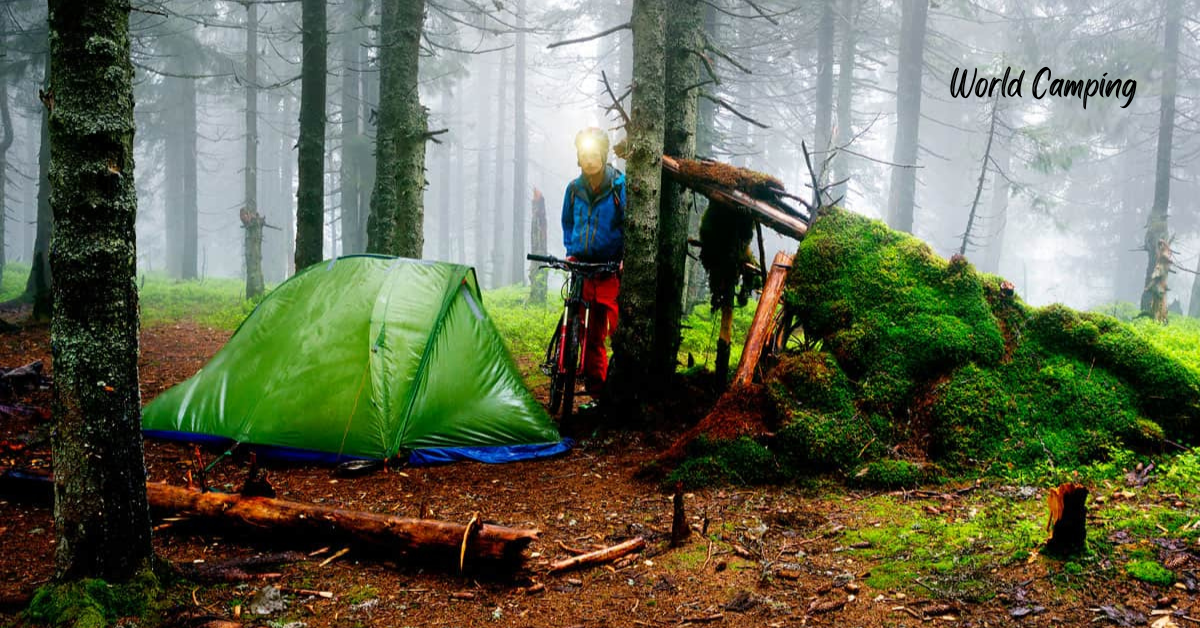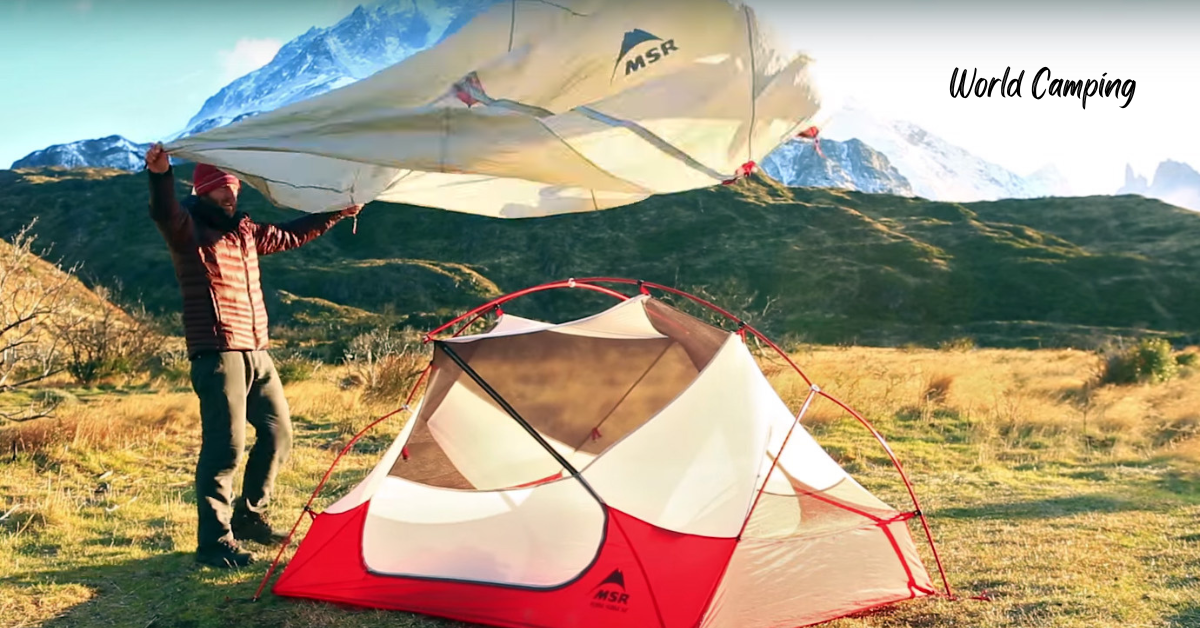How do you Choose a Camping Stove?

Choosing the right camping stove is crucial for outdoor enthusiasts who enjoy exploring nature while still being able to prepare hot meals. Whether you’re embarking on a multi-day backpacking trip, car camping with friends and family, or simply enjoying a solo adventure.
Types of Camping Stoves

Choosing the right type of camping stove depends largely on your camping style, cooking preferences, and logistical considerations. There are several types of camping stoves available, each with its own advantages and ideal use cases.
Canister Stoves

Canister stoves are popular choices for camping due to their convenience, reliability, and ease of use. These stoves typically use a pressurized canister filled with a mixture of propane, isobutane, or butane as fuel.

They are compact, lightweight, and easy to transport, making them ideal for backpacking and camping trips where space and weight are considerations. One of the key advantages of canister stoves is their simplicity in operation.
Liquid Fuel Stoves

Liquid fuel stoves are versatile and robust options for camping, offering reliability and performance in various outdoor conditions. These stoves typically use liquid fuels such as white gas (also known as Coleman fuel), kerosene, unleaded gasoline, or diesel.
They are preferred by many campers for their ability to operate effectively in cold temperatures and at high altitudes, where canister stoves may struggle due to fuel vaporization issues.
Key Features to Consider When Choosing a Camping Stove

Selecting the right camping stove involves evaluating various features that impact usability, performance, and suitability for different outdoor activities. Understanding these features will help you narrow down your options and find a stove that meets your specific camping needs.
Simmer Control

Simmering refers to the ability of a camping stove to maintain a low and consistent heat output, allowing for gentle cooking such as simmering sauces, soups, or delicate foods without scorching or boiling over. This feature is particularly important for campers who enjoy more nuanced and controlled cooking while outdoors.

Look for stoves with adjustable flame controls or regulators that allow for varying heat levels. Heat distribution ensures even cooking.
Fuel Efficiency and Consumption

Fuel efficiency and consumption are critical considerations when choosing a camping stove, as they directly impact how long you can cook on a single fuel source and how much weight you’ll need to carry in fuel supplies.
Fuel-efficient stoves not only reduce the amount of fuel needed for cooking but also contribute to minimizing environmental impact by reducing emissions and waste.
Features to Consider

When choosing a camping stove, there are several features and factors to consider to ensure it meets your specific needs and enhances your outdoor cooking experience.
Cooking Capacity

When choosing a camping stove, understanding its cooking capacity is crucial to ensure it meets your needs during outdoor adventures. Cooking capacity refers to the stove’s ability to accommodate the size and number of pots or pans you intend to use simultaneously.
This includes considering the number of burners and their power output.

For solo or small-group camping, a stove with one or two burners might suffice, allowing you to cook simple meals efficiently. These stoves are often lightweight and compact, ideal for backpacking or minimalist camping setups where space and weight are critical considerations.
versatility

When selecting a camping stove, versatility plays a crucial role in ensuring it meets the varied demands of outdoor cooking scenarios. Versatility refers to the stove’s ability to adapt to different cooking methods, types of meals, and environmental conditions encountered during camping trips.
A versatile camping stove typically accommodates various cooking styles, from boiling water for quick meals to simmering delicate dishes that require precise temperature control. Stoves with adjustable flame settings or multiple burners allow for greater flexibility.
In cooking different types of food simultaneously, making them suitable for both solo adventurers and larger camping groups.
Considerations for Choosing a Camping Stove

When selecting a camping stove, thoughtful consideration of several key factors ensures you choose the most suitable option for your outdoor adventures. First and foremost, determining the appropriate fuel type is essential.
Propane and butane are popular for their convenience and availability, while liquid fuels like white gas offer versatility in extreme conditions.
Camping Style

Your camping style significantly influences the type of camping stove that will best suit your needs and enhance your outdoor experience. Camping styles vary widely, from minimalist backpacking to family camping or base camp adventures, each with unique requirements for cooking equipment.

For backpackers and minimalist campers, where weight and packability are paramount, lightweight and compact stoves are essential. These stoves often use small canisters of propane or butane and typically feature single burners for efficiency in boiling water or preparing simple meals.
Maintenance

Maintenance considerations are crucial when choosing a camping stove, as they directly impact its performance, reliability, and longevity during outdoor adventures. Proper maintenance ensures your stove functions optimally throughout its lifespan, minimizing potential issues that could arise in remote or challenging environments.
Firstly, understanding the maintenance requirements of different stove types is essential. Stoves that use canister fuels like propane or butane
Read More:
Conclusions and Recap
Choosing the right camping stove involves several key considerations to ensure it meets your outdoor cooking needs effectively. Firstly, determining the appropriate fuel type is crucial based on availability, ease of use, and performance under varying conditions.
Whether you opt for propane, butane, white gas, or alcohol depends on factors like portability and versatility. Secondly, selecting the stove type—such as canister stoves for simplicity, liquid fuel stoves for versatility, or alternative fuel options for efficiency—should align with your camping style and cooking preferences.
FAQS
How do I maintain and store a camp stove for longevity?
Regular cleaning, proper storage in a dry place, and routine maintenance of fuel lines and burners ensure optimal performance and longevity of your camp stove.
Do I need special cookware for a camp stove?
Choose lightweight and durable cookware that matches your stove’s size and cooking style, ensuring efficient heat transfer and stability.
Are there eco-friendly options for camp stoves?
Yes, consider stoves that promote fuel efficiency, minimize emissions, and support sustainable fuel choices like alcohol or wood alternatives.
How do I know if a stove is suitable for high-altitude camping?
look for stoves with a robust design, efficient fuel vaporization at altitude, and stable performance in cold temperatures.
How do I determine the right size and weight for a camping stove?
the size and weight of your camping stove depend on your specific needs. For backpacking, prioritize lightweight and compact stoves. For car camping, you have more flexibility with larger stoves that offer multiple burners and cooking space.




